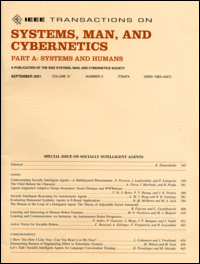Keeping the resident in the loop: Adapting the smart home to the user
Advancements in supporting fields have increased the likelihood that smart-home technologies will become part of our everyday environments. However, many of these technologies are brittle and do not adapt to the user’s explicit or implicit wishes. Here, we introduce CASAS, an adaptive smart-home system that utilizes machine learning techniques to discover patterns in resident’s daily activities and to generate automation polices that mimic these patterns. Our approach does not make any assumptions about the activity structure or other underlying model parameters but leaves it completely to our algorithms to discover the smart-home resident’s patterns. Another important aspect of CASAS is that it can adapt to changes in the discovered patterns based on the resident implicit and explicit feedback and can automatically update its model to reflect the changes. In this paper, we provide a description of the CASAS technologies and the results of experiments performed on both synthetic and real-world data.


Leave a Reply
You must be logged in to post a comment.